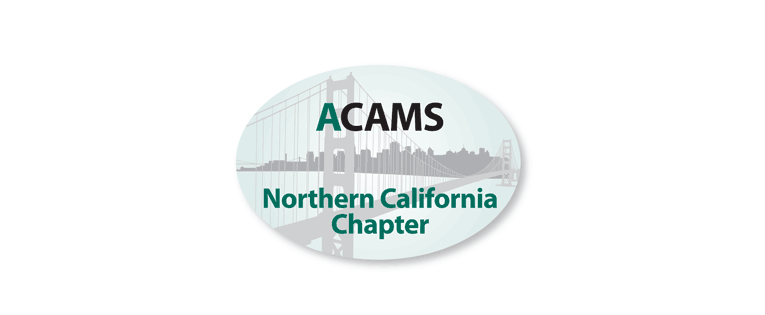
Following the successful co-chapter webinar on offshore tax havens with ACAMS Southern California Chapter in January, on February 24, 2011, the ACAMS Northern California Chapter presented Spanning the Globe: Best Practices to Comply with OFAC. The event was held at the corporate headquarters of the Bank of Marin in Novato, California and included AML professionals from Union Bank, Wells Fargo, First Republic Bank, Charles Schwab & Co., and the California Department of Financial Institutions, among others.
Greg Hughes, OFAC compliance officer, Union Bank and Michael Romero, global sanctions program strategist, Union Bank's Global Sanctions Unit were the featured presenters. Prior to serving in his current position, Hughes developed correspondent banking products and managed system development projects for Union Bank's International Banking Group. Romero previously served as a sanctions investigator in the Mexico section of OFAC's Global Counter Narcotics Division. In addition, representatives from Alacra demonstrated the use of their Alacra Compliance workflow tool through a case study.
Hughes focused on a day in the life of an OFAC compliance officer. He described how he monitors the performance of existing screening platforms, assures lines of businesses are implementing their OFAC screening procedures, documents OFAC policies and procedures and conducts bank wide OFAC training seminars. Moreover, Hughes demonstrated an example of a line of business OFAC Risk Assessment and how residual risks were identified. The example included line of business products and services, customer base, OFAC risk factors, mitigating controls, and the resulting residual risks. Furthermore, he described Union Bank's OFAC Affidavit Program, whereby a Union Bank customer certifies that while transmitted funds may have originated from a sanctioned country, the transfers were permissible under existing OFAC regulations.
Romero followed up Hughes with a look inside OFAC's organizational structure and how OFAC proceeds through its designation process. Subsequently, he provided additional insight into Mexico's new currency laws through Mexico's Regulatory Changes: Restrictions on U.S. Dollars. The Mexican Finance Ministry, Secretaria de Hacienda y Credito Publico de Mexico (SHCP), published new anti-money laundering regulations, which now restrict the amount of physical U.S. Currency Mexican Banks may receive.
In sum, the regulations make a distinction between customers and non-customers under the September 2010 amendment, which primarily impact the companies, hotels and duty free stores acting as registered bank agents. In the December 2010 amendment, the Comisión Nacional Bancaria y de Valores (CNBV) announced almost an 80 percent drop in the export of dollars from Mexican banks to the U.S. Moreover, the amendment increased the amount of deposits permitted for bank business customers in designated tourist zones to US$14,000 per month and increased the amount of dollars accepted by registered bank agents from US$100 to US$250.
The event was closed out with a brief town-hall discussion between the executive board and the chapter members to identify possible hot topics that members would be interested in for future learning events. The chapter is focused on bringing awareness to local financial crimes issues and enhancing "on the job" skill sets with best practices from local subject-matter experts.
The next event, Drilling Down: CIP to Beneficial Ownership Strategies will be held June 7, 2011 from 4 – 6pm at Wells Fargo located in San Francisco's Financial District. Also, save the date, on November 11, the chapter has confirmed an event will be held at Bank of the West in Sacramento, California. More details to follow.










